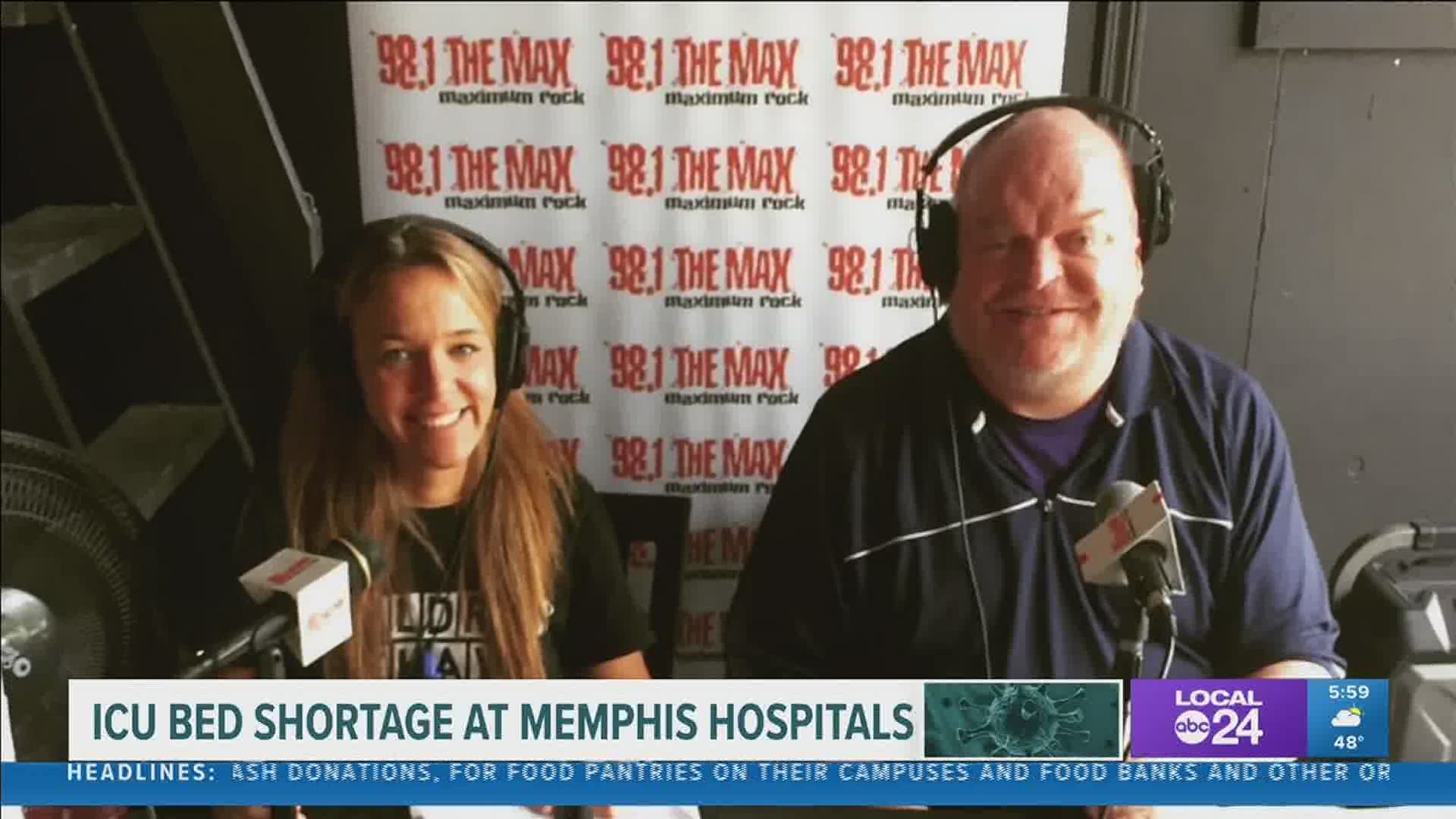MEMPHIS, Tenn. — If you have an emergency will you be able to get help at the hospital? It's a question many are asking after hearing radio D.J. Chris Jarman had to be sent more than 100 miles away for an intensive care unit.
Baptist Healthcare Officials confirmed there were no intensive care beds available in the Memphis area at the moment Jarman needed one.
But despite a bed shortage, health leaders said if you are having an emergency, your best chance of survival is to go to an emergency room. You will still get the help you need.
"They did take him to the nearest hospital. They took him to Baptist Crittenden and so they did the right thing. They took care of him and stabilized him," said Stacy Hammett, Baptist Telehealth Administrator.
Hammett talked about what happened when radio DJ Chris Jarman was rushed to the hospital Tuesday with a blood clot. Hammett said doctors and nurses did what they were supposed to do at the emergency room, which stabilized him.
Baptist Crittenden is a small 11-bed hospital. It does not have an intensive care unit, so Jarman was monitored remotely by doctors and nursing staff back in Memphis by what's called E- ICU, or electronic ICU. E-ICU is a system Baptist Healthcare has where a camera system and monitoring equipment is placed in a patient's room and critical care employees can monitor and provide direct care remotely.
"He was getting ICU level of care and attention - that was ICU trained nurses and he had the ER physicians there as well," said Hammett.
Right now, because hospitals are so full, most of the hospitals across our region are not accepting transfer patients. Jarman had to be transferred to an ICU bed in Batesville Arkansas - 100 miles away.
"He was transferred to the nearest hospital that had the capacity and ability to take care of him - all of that happened correctly. It was unfortunate there were not any beds in Memphis, but we kept trying until we found a place that had a hospital with that ICU level of care, physicians and nurses," said Hammett.
Jarman died later that day at the Batesville hospital.
There is a concern that people who need medical help won't go to the hospital, fearing there are not enough beds. But healthcare officials said that is not the case.
Hammet said if you are need medical care, anyone who goes to an emergency room will get help. Only once a person is stabilized does the hospital transfer a patient to a room. If they can't find a bed to transfer the patient to, the patient stays in the emergency room setting, which is where critical care doctors and nurses are, until a room becomes available.
At Thursday's joint COVID-19 task force meeting, members said they are working with hospital leaders to expand bed capacity, and that additional beds have already come on line this week.
"Though the numbers are very high, there is still the capacity to treat people who need hospital care," said Doug McGowen, City of Memphis Chief Operating Officer.
Hospital leaders said the number of beds available, or trying to find a place to transfer a patient to, is really an internal issue. It is separate from patients getting treated at an emergency room.
Plus, they say anytime you hear a number, like 97% full, keep in mind that is just a snapshot in time.
"It's always in and out all day long, so minute by minute the situation can change," said Hammett.

